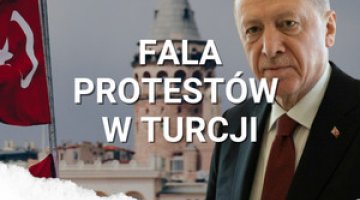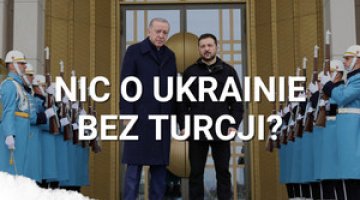Analyses
Turkey: a definitive end to the army’s political role
On 5 August, an Istanbul court passed sentences in the Ergenekon case, which has been ongoing since 2008. ‘Ergenekon’ refers to an alleged secret organisation which brought together high-ranking military officers, politicians, and representatives of academia and the media who, after the conservative Justice and Development Party (AKP) came to power in 2002, had been working to destabilise the situation in the country and thus pave the way for a military coup. Of the 275 defendants, 21 were acquitted while the others were convicted; nearly 20 life sentences were handed down (including to Gen. Ilker Başbuğ, the Chief of Staff from 2008-2010).
Commentary
- The Ergenekon case, along with ‘Balyoz’, a similar case concerning conspiracy concluded last autumn, was an attempt to deal legally with the ‘Kemalist’ bureaucratic-military elites (so called after the founder of the Republic, Mustafa Kemal Atatürk), and especially the phenomenon of the ‘deep state’. Since the founding of the republic in 1923, the army, as the guardian of Atatürk’s political heritage, has been effectively standing over the civilian government, interfering in the political situation, and on three occasions (1960, 1971, 1980) staging coups. In addition to the army’s legally sanctioned role, a so-called ‘deep state’ existed; this was a hidden network of relationships between military and civilian elites which influenced the situation in the country – sometimes even by criminal means (such as murder or terrorist attacks) –, framed in terms of the Cold War, including plans for sabotage in the event of Soviet aggression.
- Although the existence of the ‘deep state’ is a historical fact, from the beginning the investigation of the Ergenekon case, which was opened after the AKP won a second term in the 2007 parliamentary elections, was primarily seen within the context of a fierce battle between the party (which has conservative and religious roots) and the army, which stood as the guardian of the secular state (albeit in a very dogmatic interpretation of that role). Elements of this struggle included the attempt to block the election of Abdullah Gül as President in 2007 (the army felt he was overly religious), and the attempt to ban the AKP in 2008. However, some of the verdicts in the Ergenekon case may be revised in the appeal process, the end of the trial itself, and convictions of the majority of the defendants – coinciding with the government’s replacement of the commanders of all the armed forces, as well as legislative changes to the status and responsibilities of the army – can be seen as a symbolic sealing of the AKP’s victory and the end of the role of the army as a political factor in Turkey.
- Although the end of the trial has sealed the AKP’s hegemony over Turkish politics, Prime Minister Recep Tayyip Erdoğan has criticised the sentencing of the former Chief of Staff Ilker Başbuğ to life in prison. This may confirm speculation that the main force behind the trial, influencing the special prosecutors and judges dealing with the case, is the movement associated with the Islamic leader Fethullah Gülen. This group has considerable influence in Turkey’s state bureaucracy, business and the media, and has been in political alliance with Prime Minister Erdoğan’s faction since the founding of the AKP in 2001; however, it maintains an independent position and – as is presumed – has its own political objectives, and has come into conflict with the Prime Minister ever more frequently in recent years.




